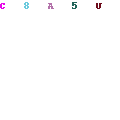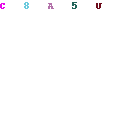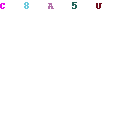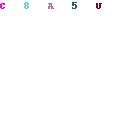There is no precise business definition for the term “ passive income ” in Germany. Based on the definition in other countries, passive income is referred to as regularly incoming money without personal commitment . In order to receive and maintain this income, you as the recipient do not have to make any or only minimal efforts.
Passive income in tax law
Taxation describes money that flows without any time or effort as passive income. As a rule, the cash flow arises from a long-term initial investment or an initialized effort that generates automatic cash flows. The amount of money received is subject to fluctuations and, depending on the project, can come to a standstill after a while. For taxation, however, it is irrelevant whether it is an active or a passive money income. The legal form of income is only relevant for the assessment.
According to the tax definition, active income is a reimbursement of money for the work of a person who, in return, spends a certain amount of time or personal commitment. Classically, this is the income as an employee . The employee sells a defined percentage of his (life) time and receives remuneration for it. With passive incomeno more constant expenditure of time is necessary. The income flows automatically. That doesn’t necessarily mean that it doesn’t take time, energy, or labor. It only describes the fact that there is no direct exchange of time for money. The often used phrase “earn money in your sleep” overlooks the fact that a lot of effort was previously made and that work, energy and often financial resources in the form of money were used. A build passive income therefore requires previous action.
There are no restrictions in tax law on the amount or duration of passive income. The spectrum ranges from minimal amounts to extremely high sums. However, since it is a labor, time and energy-intensive expenditure in advance, passive income is generally invested for the long term. From a tax point of view, it’s a profit that you have to pay income tax for. If you are a corporation you will have to pay capital gains tax.
If you are a freelancer you should be aware that you could endanger your status with a passive income.
Business considerations
According to the Internal Revenue Service (IRS), income can be divided into three main categories: active income , passive income and portfolio income . The agency defines passive income as income from only two sources. Rental activities as well as a commercial or business activity in which you as a beneficiary are not significantly involved. The American definition is similar to the German tax terminology and is often adopted as a business definition.
According to the IRS, passive income is different from normal income and wealth. Passive income is defined as the stream of income that can be earned with little effort. To progressive passive income is if I need to increase the income stream minimal use. Linear active income refers to a constant income that requires constant activity to maintain. As soon as a person decides to stop working, the income goes out. A portfolio result comes from investments and includes capital gains, interest, dividends, and royalties.
Types of passive income
- Any type of cash flow real estate income : including gains from owning capital, rental costs from resources such as rental income. In addition, incoming cash flows from real estate or other real estate as well as interest from the possession of financial assets.
- Trading or business activities in which the beneficiary is not materially involved during the year.
- License fees , i.e. payments that one company (the licensee) makes to another company or person (the licensor) in return for the right to use the intellectual property (book, music, video) of the licensor.
- Some forms of limited partnerships can also be viewed as passive, as long as the limited partners play no role in the company and exchange their capital investments for part of the business profits.
- Rental activities
Active-passive boundary – when is it passive and when is it active income?
In Germany there is no clear business definition of passive income. Therefore, the question arises again and again when the change from active to passive income takes place. A gray area arises when declaring that passive income basically represents any income, including sick pay, vacation pay, pension or the receipt of social benefits. Typical gray areas exist, for example, in real estate ownership, investment income from companies, blogs or software developments:
- Is it a passive income if the landlord not only lives from the rental income, but manages the property himself and is the contact person for the tenants?
- Is the successful entrepreneur’s capital income passive income when his presence in the company is essential?
- Is income as a blogger still passive if the owner maintains the pages himself?
- Does software development that has been programmed and can be sold as often as required belong to passive income and what about updates and / or maintenance?
The above sources of income are basically well scalable. If working hours and income increase linearly to one another, the income is no longer passive, but active . This leads to the question of how much working time is allowed so that the income remains passive. Actually, the workload should be zero with a passive income. In reality, however, this can only be enforced in a very few cases. So must
- Real estate owners make at least important decisions themselves,
- Entrepreneurs participate in the definition of corporate goals,
- Blogger answer comments and / or publish articles and
- Software developers further develop their software, write updates and element bug fixes using new features.
Even book authors or dividend shareholders cannot “just put their hands on their lap”. The author will need to update or revise the book depending on the genre. The market forces owners of dividend stocks to buy or sell stocks in order to achieve or maintain the desired return. With passive income, a minimum of activities is generally necessary.



